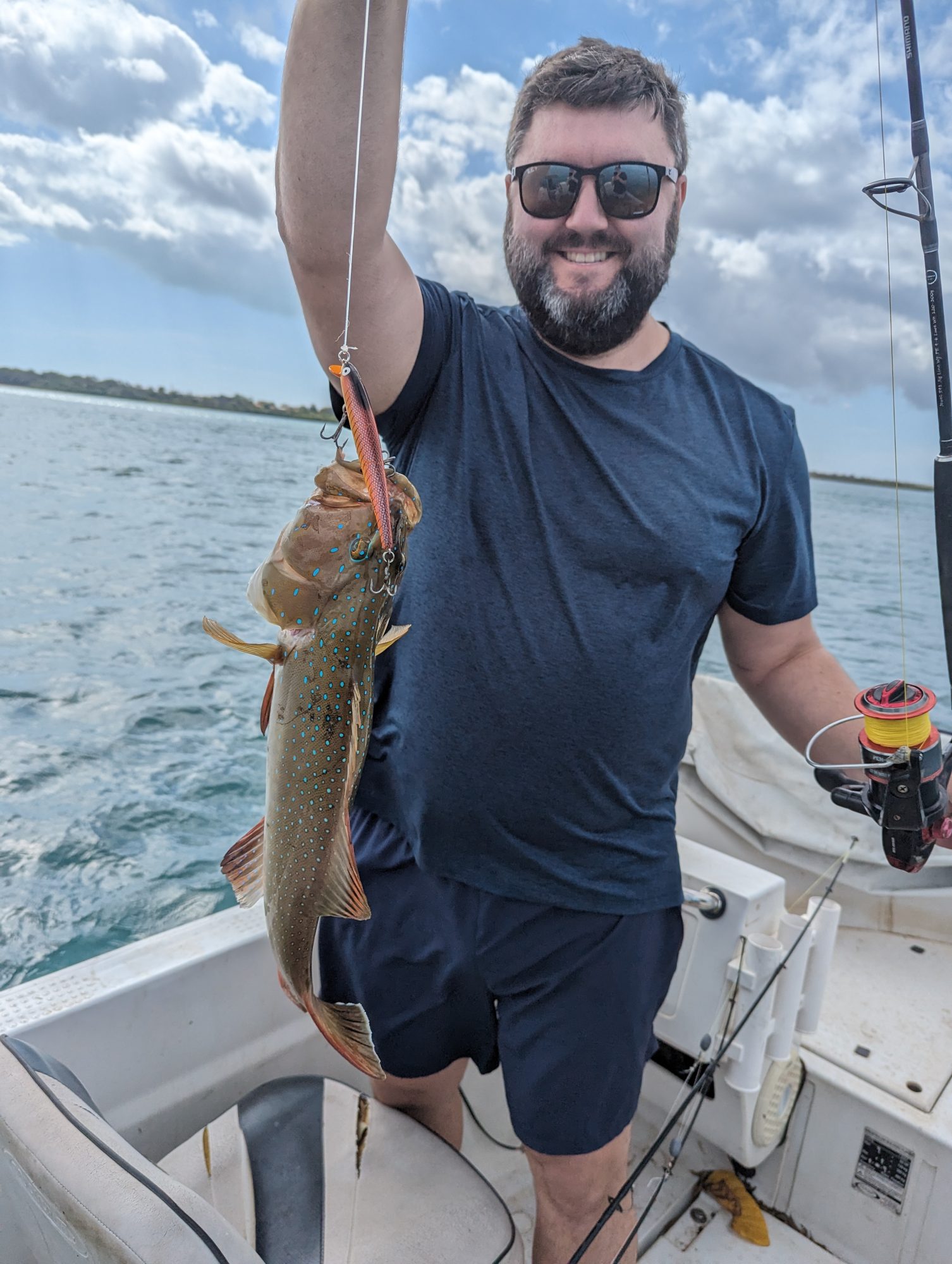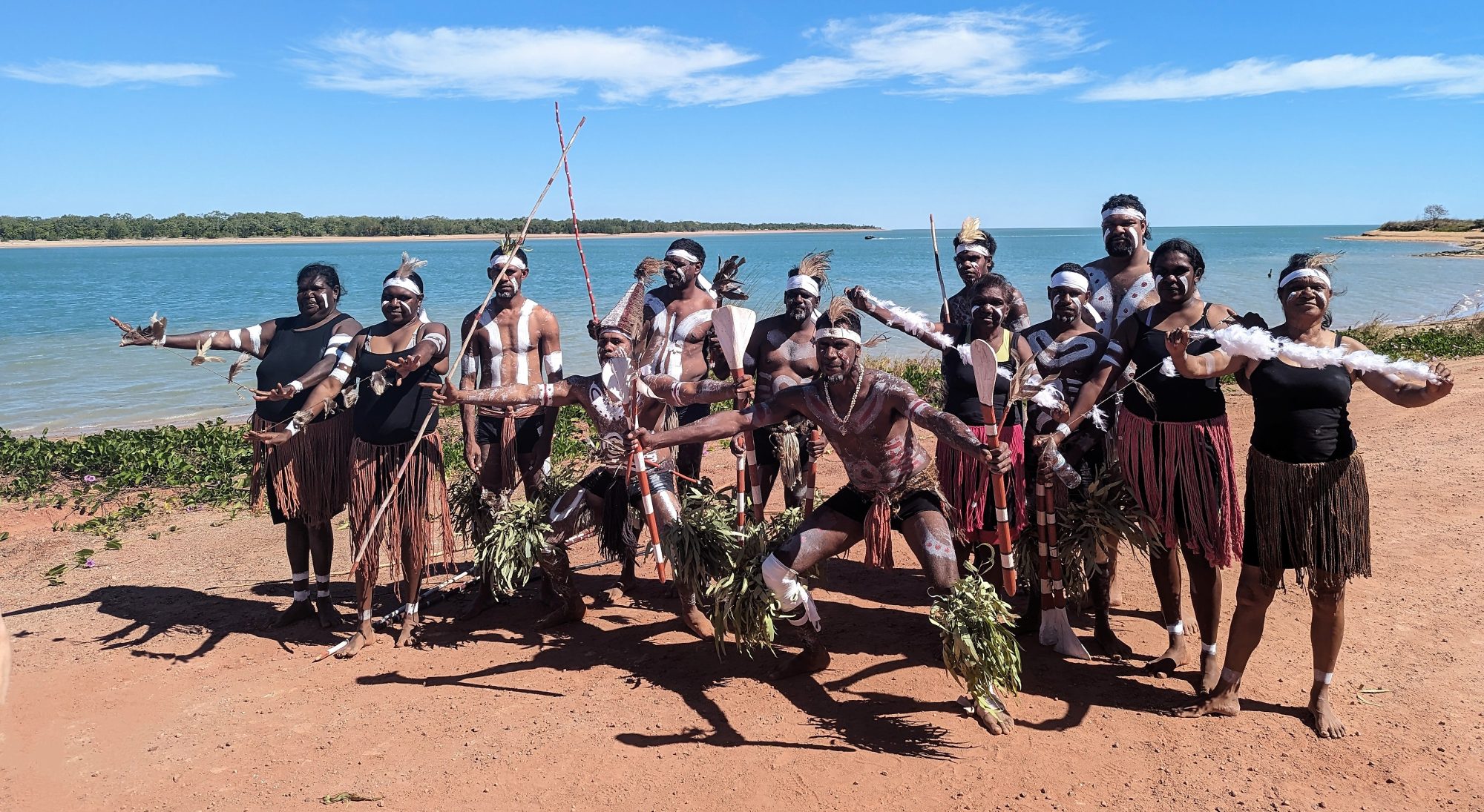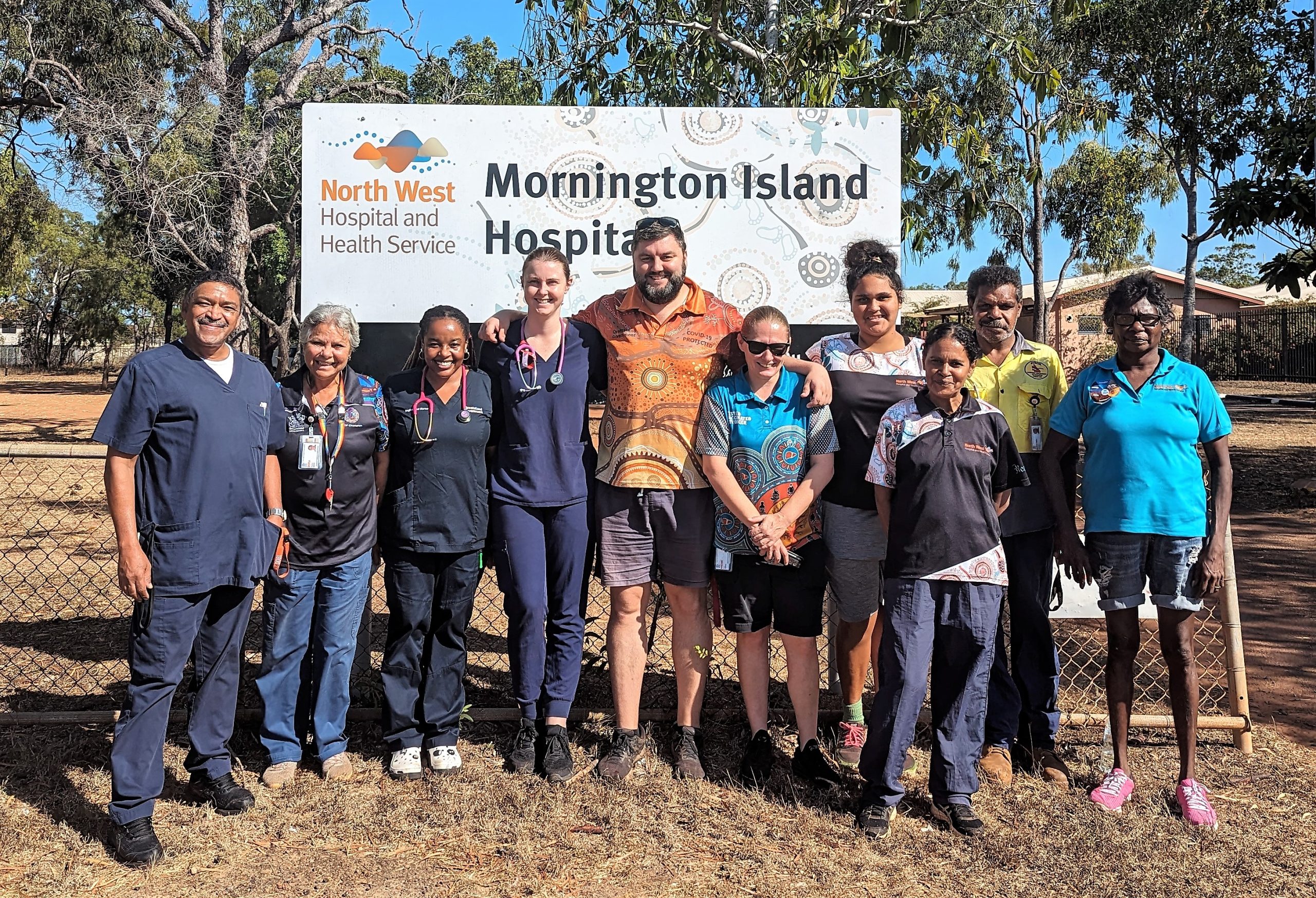Originally from Wales, Simon’s current role is nurse unit manager for our Medical G2 ward but he recently took up the opportunity to spend three months working on Mornington Island in the Gulf of Carpentaria.
After years of COVID, border closures and a global staffing crisis he was ready for a change of scenery.
“Those years were very difficult, and there was a lot of strain on the staff, so I just wanted a bit of a break,” he said.
Regardless of the role or the situation, he has found that the key element is teamwork.
“Teamwork gets you through when times are toughest, for example in the military, sometimes we’ve been in hostile environments and the only thing that will get you through is teamwork and a good sense of morale,” Simon said.
While completing his registered nurse training, Simon was mobilised as a Royal Navy Reservist for a 12-month enlistment in the Middle East.
“This was to assist the Royal Marines in a ship’s protection role,” he said.
“It was an amazing experience, and I’d say it’s one of the best jobs I’ve had outside of nursing, because you’re having to trust and rely on each other during some risky situations.”
Simon returned from active service and went back to university in Swansea to complete his nursing degree, before enlisting in the Royal Navy full-time.
He was posted to Birmingham.
“The University Hospital of Birmingham (UHB) is an NHS hospital where military servicemen and women work alongside NHS staff,” he said.
“It is a centre of excellence for neurosurgery and liver surgery, and due to the nature of conflicts in both Iraq and Afghanistan, it was pioneering in trauma surgery and medicine.”
Simon worked on all three areas as required by postgraduates, over a three-year period.
“This was phenomenal experience from a nursing viewpoint, but also harrowing with the sadness associated with servicemen and women and their life-long injuries,” Simon said.
“It was particularly difficult at times as the injured service personnel were my age or younger, some as young as 19 years old.”
Service men and women were injured in Afghanistan and Iraq, flown to Camp Bastion (Afghanistan) for life saving and limb surgery, then repatriated to the relevant wards/ in Birmingham.
“This would be the first time they had seen family since deploying and sustaining their injuries,” he said.
Simon then worked in the Royal Marines training centre (CTCRM) for three years, but Australia was calling.
“In 2017 Mackay Base Hospital was recruiting in the UK, and they were at the Birmingham Recruitment Fair,” Simon said.
“My partner and I were already planning to make the move so I already had my visa lined up.
“It’s like a bit of a dream for people in the UK to go over to Australia, because you see all the nice weather, and the beaches, and I like sailing so that’s what attracted me to this area.”
Simon moved to Mackay in 2017, firstly working in the Emergency Department for three years before stepping into roles on F2 and G2 wards. He was appointed to the G2 nurse unit manager role almost three years ago.
After the years of COVID, Simon was ready for a change of scenery.
He did some short stints in Proserpine and Hughenden before stepping into a three-month position of Acting DON in the remote community of Mornington Island, a North West Hospital and Health Service (HHS) facility.
“There were some real challenges there, particularly in my first few weeks,” he said.

“I worked with other organisations in the community, and we met weekly to brainstorm where we needed solutions.
“I did enjoy my time on Mornington,” he said.
“It was a change of scenery, and it gave me some good perspectives on managing a small facility.
“It’s very remote because you are on an island.
“You can’t just get in your car and drive. You’re isolated, and you’ve got to keep the team together so that we can provide care in that community with a small team of about 15 staff.
“Mornington Island has some beautiful sunsets which can be seen from the Gold Cliffs and there’s some great fishing.
“It is a beautiful island, and I was starting to feel a part of the community and being recognised for the right reasons by the local population.”




